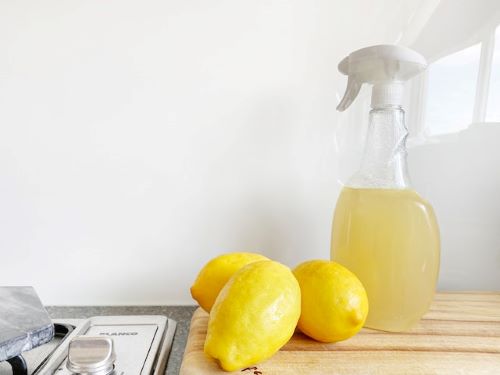#5: Toxins
Every day we are exposed to thousands of toxins both in our homes and out and about. It has been well studied that toxins can act as endocrine disruptors.
The endocrine system controls and regulates complex activities in the body by secreting hormones into the bloodstream. Hormones are messengers that bring information to cells and help maintain whole-body balance or homeostasis, and they regulate everything from your reproductive system to your metabolic functions.
Endocrine disrupting chemicals can cause all sorts of havoc with your systems by mimicking, blocking hormones, Interfere with hormone production, and/or modifying the body’s sensitivity to hormones. They have a hand in increasing production or certain hormones, decreasing the production of others, imitating hormones themselves, turning one hormone into another, binding with hormones, and interfering with hormone signalling.
How does this relate to fertility?
Healthy fertility rates depend on viable eggs in women and plentiful sperm in men. Studies have linked these chemicals to negative impacts on both.

For example, BPA (found in plastic bottles and food storage containers) changes the neuroendocrine pathways fundamentally in reproductive health. Other culprits include PBDEs (used in products from flame retardants to electronics) and phthalate (commonly used to increase the flexibility of plastic and vinyl) There’s also evidence that endocrine disrupting chemicals induce changes to “germ cells,” the precursors to sperm and egg cells.
BPA exposure during a woman’s reproductive years has been shown to compromise embryo implantation. In Denmark, women under 40 working in the plastics industry were more likely to have sought fertility assistance than unexposed women of the same age.
For men, sperm counts in certain regions of the world including the United States have declined by as much as 50 percent over the last half century.
In addition to infertility, they can lead to premature puberty and menopause, and even cause uterine and ovarian cancer. In men, they reduce testosterone levels, reduce the quality of sperm, and cause benign testicular tumours.
Being exposed to things once or twice is not so grave but when you have exposure every day, year upon year, it equates to a very detrimental effect on our body. Toxic load is defined as the accumulation of endocrine disrupting chemicals in our bodies that we ingest from a variety of sources, including the environment, the food we eat, the water we drink, and the personal care and household products we use.

The good news is that we do have control over how many toxins we accumulate. For one thing, our bodies have four major organs responsible for clearing out toxins: the skin, kidneys, colon and liver. By optimising the health of these organs, it can help filter out the toxins effectively.
When it comes to our environment, we can’t necessarily control what is outside of our home but we can control what is happening inside our homes. We can make swaps, or when something finishes/breaks, replace it with a non-toxin alternative. Rome wasn’t built in a day so little steps will all help.
There are lots of eco friendly cleaning products which are much less toxic than others, and if you want/have the time, you can make your own using vinegar/bicarbonate of soda and some essential oil to make it smell good. Your washing powder and fabric conditioner can be a huge source of toxins in the home.
Skincare and cosmetics are items which we put directly onto our skin, of which can then be absorbed into our systems (up to 70% of what we put on our skin can be absorbed). You should choose the items wisely. Look for organic products and natural ones, but be careful of labelling as it can sometimes be misleading.
Pesticides and herbicides are used widely across the world and some countries are stricter than others. Amounts which are found in some fruit and veg are higher than others. The EWG have a list of the ‘dirty dozen’. Products are tested each year and those with the highest amounts of chemicals found on them make the list. For the latest list, visit their website.

If you have a garden, try growing some veg, or if you can afford it, try some organic produce. If there is a fruit or veg that you eat every day, then get that as an organic product so you reduce your exposure.
As an alternative to plastic bottles there are lots of options out there, glass and stainless steel are the most popular options and the same goes for Tupperware and other food storage options.
Children’s toys are also something to think about.
If we are redecorating or changing the carpet, look for more natural products. Be aware that flame retardants in most sofas and mattresses are detrimental to our endocrine systems.
If you are a fan of home fragrances, look carefully to see what it is that you will be breathing in all day long as a lot of them are filled with all sorts of chemicals.
Even if you are not looking to conceive, these toxins are something important to bear in mind as they affect everyone.
Start making some changes to your home environment today.
#6: Caffeine
Caffeine is ok in moderation, and it is recommended that a pregnant woman has no more than 200mg of caffeine per day, due to the increased risk of miscarriage, however what about before you even get there?
Are there effects which should be considered?

When trying to conceive, there is a mixed bag of evidence. Some studies have found that it can affect the ability to conceive, whilst others have not. The studies which jump out when trying to conceive are about caffeine in fizzy drinks, showing that women who drank soda were less likely to conceive in any given month than women who didn’t drink soda. Women who drank three servings of soda per day had worse fertility rates than women who drank one soda serving per day. This may well have something to do with sugar content consumed in the soda too.
There is just not enough evidence to make a definitive conclusion.
When it comes to male fertility, there is nothing solid to confirm that it can be detrimental, so more studies are needed.
Generally though, if you are trying to conceive, it would probably be a good idea to reduce you caffeine intake and aim for about 200mg per day or less. That way, when you do conceive, it will be one less thing to think about having to deal with.
#7: Sleep
If your work schedule or lifestyle leads to frequent late nights with early wake-up calls, the constant lack of sleep can affect your body and your fertility.
Sleep can impact it because it’s when your cellular repair takes place and your inflammation levels drop. Inflammation is very bad for eggs and sperm and the inflammatory environment is not ideal for conception. Not only does inflammation impact your egg and sperm quality but also your uterine environment, making it a two-fold situation.

Research has shown that people who regularly get less than five hours of sleep are more likely to experience obesity, which can increase the risk of pregnancy problems and miscarriage.
Working nights may also affect your fertility.
A 2019 study of 22,744 women discovered an association in which pregnant people (between 8 and 22 weeks) who had worked at least two night shifts in a week experienced a 32% increased risk of miscarriage in the week after they worked.
However, the research did not take into account other factors that could have affected the participants’ fertility and did not prove a causal relationship. It is still unknown whether the night shifts were a factor or cause of the miscarriages.

Another study concluded that night shift work can cause irregular menstruation in some women. Irregular menstruation is a risk factor for fertility problems.
Some ways to improve your sleep habits include
- Creating a bedtime routine and sticking with it
- Having a screen free hour of time before sleep
- Having a cup of herbal tea just before bed or a bath
- Avoiding caffeine in the late afternoon and evening
- Keeping your bedroom work- and TV-free
- Having a dark bedroom which is cooler.
So if at all possible, make sure your sleep hygiene is in place and you are getting approximately 7-9 hours per night and going to bed at the same time each day. Keeping it regular is important too.
#8:STIs
If left untreated, STI’s can impact your fertility permanently. Many couples don’t realise that they have something until they try to conceive because sometimes there are no symptoms and if a chronic infection has been left for too long then that is where permanent damage can occur.
Chlamydia and gonorrhoea are the most important preventable causes of infertility.
Untreated, about 10-15% of women with chlamydia or gonorrhoea will develop pelvic inflammatory disease (PID). PID can lead to infertility and potentially fatal tubal (ectopic) pregnancy. What happens is your body starts and immune response and sometimes manages to clear the infection, but in doing so, creates scar tissue. This can result in blocked or distorted fallopian tubes, which can also fill with fluid or pus.’
Once the tubes are blocked in this way, an egg cannot make the journey from the ovary through the fallopian tube to the uterus and if a pregnancy does occur, there is a high risk it can implant in the fallopian tube and not where it should do, in the uterine cavity. This is known as an ectopic pregnancy, which can be a serious and life-threatening emergency. Untreated chlamydia also increases the risk of ectopic pregnancy by a factor of six, and up to 80% of women show no symptoms.
Both Chlamydia and gonorrhoea can cause epididymitis in men. These bacterial infections can cause them to become inflamed. If left untreated it can travel to the epididymis, which is the tube that carries sperm from the testes. Inflammation can also be caused in the prostate gland and the testes themselves, which, in turn, can lead to urethritis, prostatitis, epididymitis, or epididymo-orchitis. 50% of men have no symptoms with Chlamydia and it causes a very high amount of unexplained infertility in men.

GET TESTED REGULARLY! And avoid STI’s ever being a problem when it comes to your fertility.
I’m Robyn and I am a certified Holistic Health Coach, who helps women to be in optimal health for their fertility or IVF journey.
I hope you feel more enlightened to the weird and wonderful world of fertility after learning of these facts.
If you are thinking of trying for a baby, and want to get yourself in the best health to do so, contact me to book your free, no obligations fertility review and we can discuss how I can help you on your journey.


